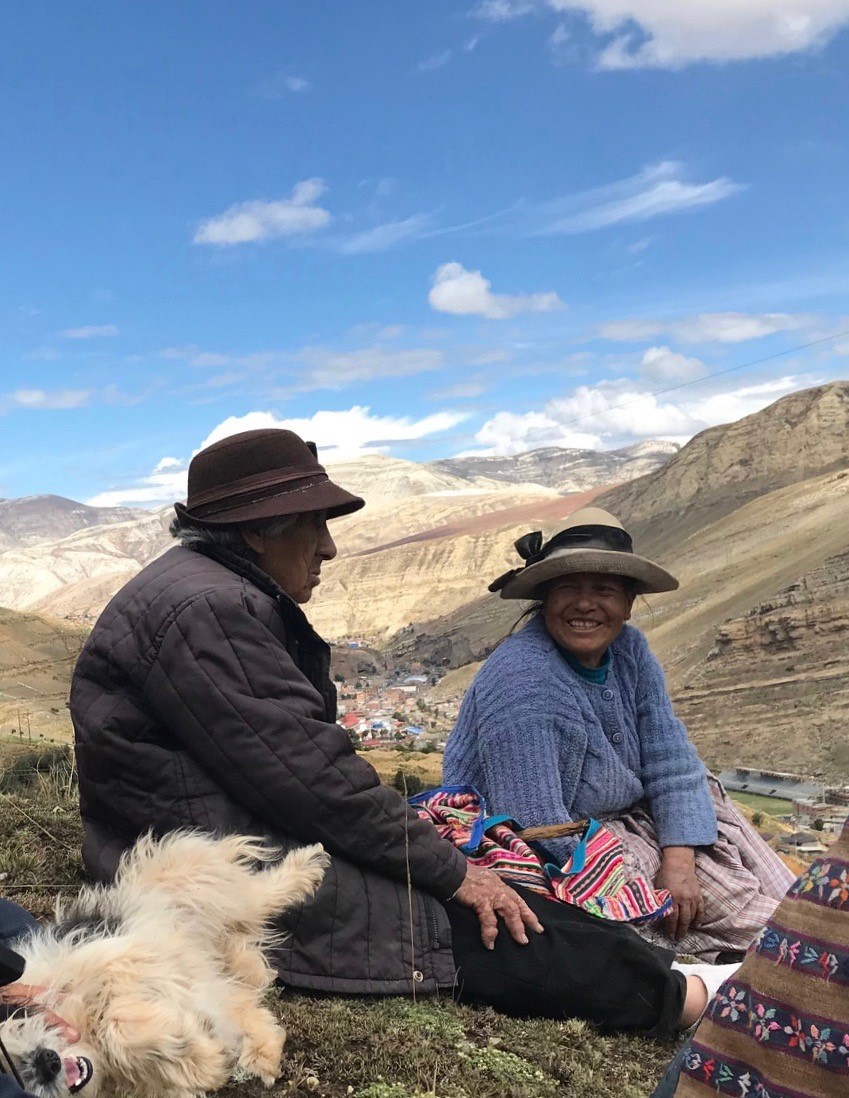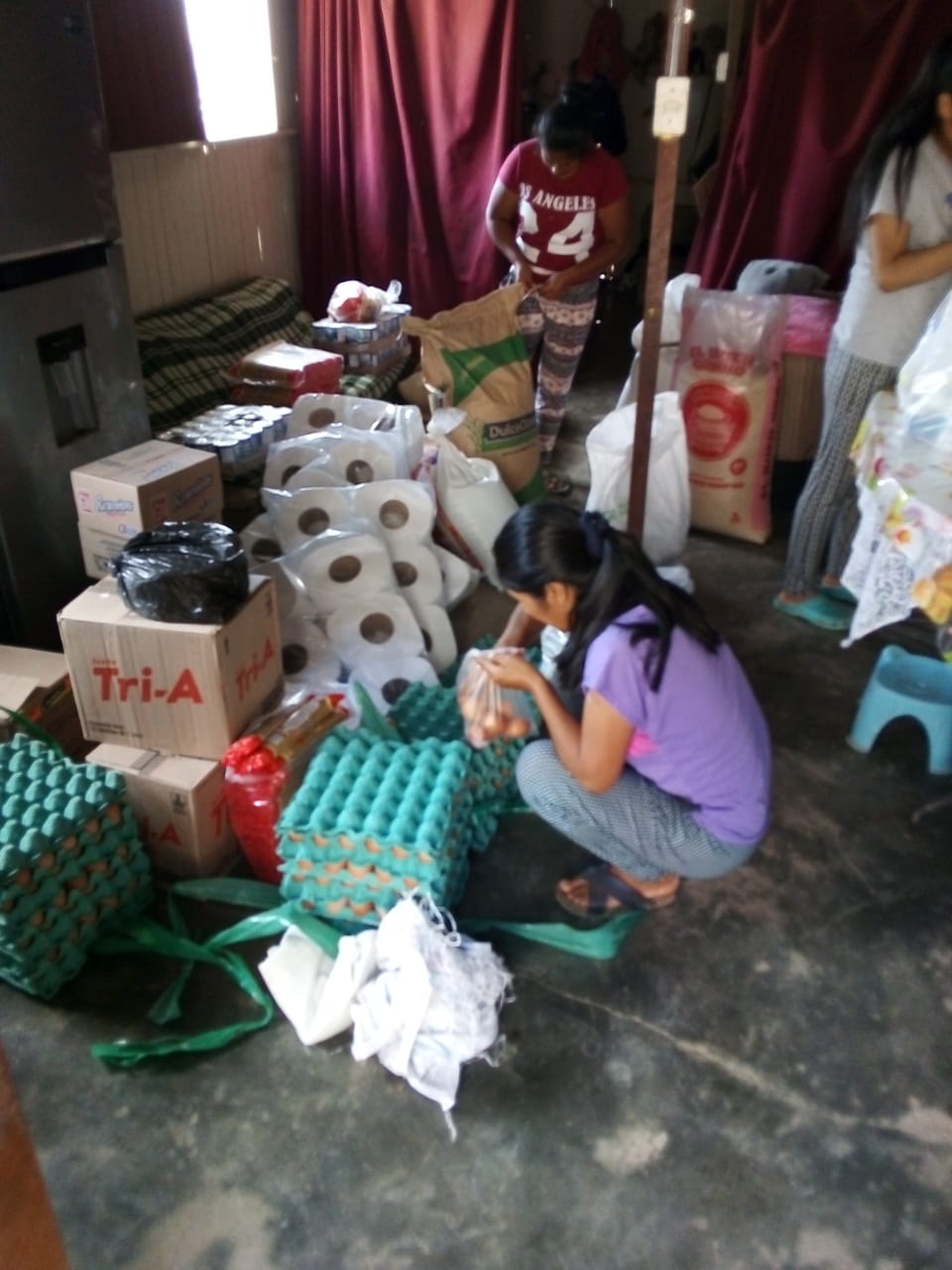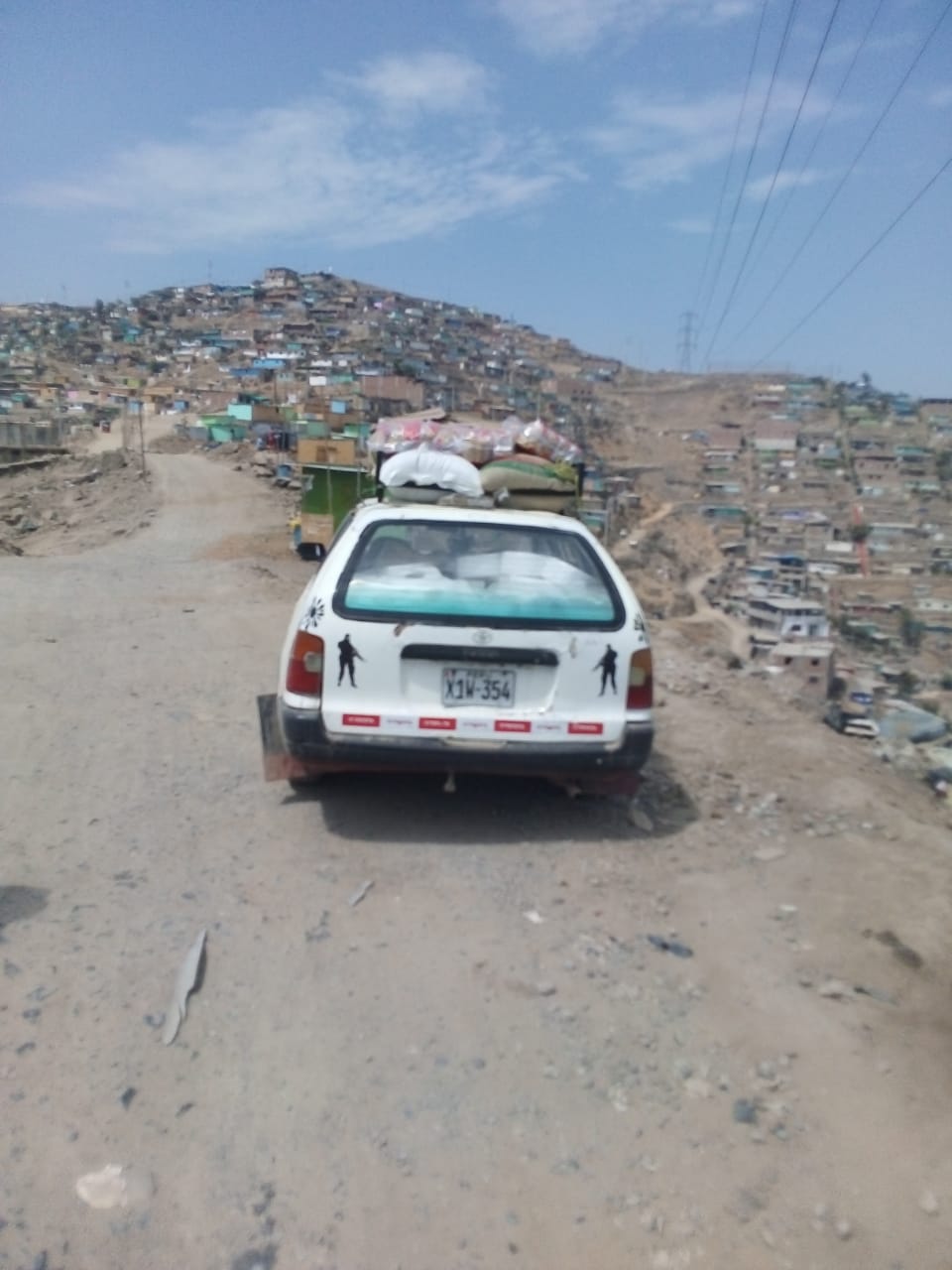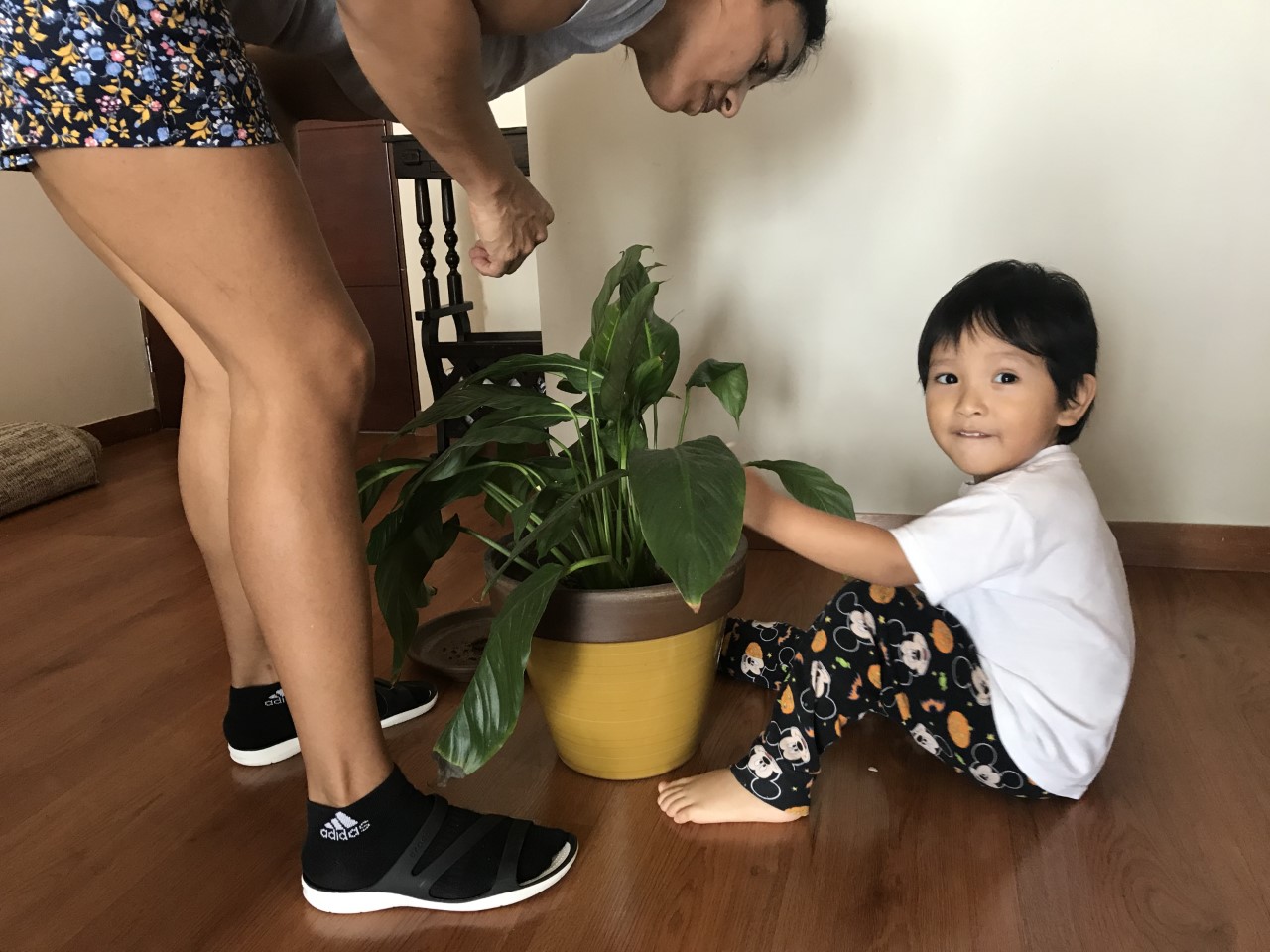A Letter from Jed and Jenny Koball, serving in Peru
May 2020
Write to Jed Koball
Write to Jenny Koball
Individuals: Give online to E200447 for Jed and Jenny Koball’s sending and support
Congregations: Give to D507513 for Jed and Jenny Koball’s sending and support
Churches are asked to send donations through your congregation’s normal receiving site (this is usually your presbytery)
Dear Friends:
“In this time of the virus, one must toughen up, pray to God, and devote oneself to something entertaining.” Victoria Trujillo, better known as ¨Mama Toya¨, speaks from the garden outside her home in Villa El Sol high in the Andes mountains. She is 84 years old and has dedicated much of her life to recuperating the communal land she shares – a land poisoned from mining activity and threatened by climate change. In fact, you can read more about Mama Toya´s work in my article in the winter edition of Mission Connections Magazine
https://lsc-pagepro.mydigitalpublication.com/publication/?m=60707&i=648019&p=18.
But today, like every other Peruvian and so many people around the world, she finds herself quarantined to her home for the foreseeable future due to the COVID-19 outbreak that has spread across the globe.
Within ten days of the first confirmed case of COVID-19 in Peru, the government declared a State of Emergency, immediately closing all borders and confining everyone to their homes except for essential workers. Since March 15, Jenny and I have only been allowed to leave our small apartment to buy groceries or go to the bank. In that time, our son Thiago turned three, and we spend much of our days keeping him as active and entertained as we can in a small indoor space. Later in May, we are told we will be allowed to take him outside for thirty minutes a day, as long as we all have our masks on and stay within 500 meters of our building. Anyone without a mask will be fined $125.00.
Many will say that the draconian measures taken by the State of Peru were necessary to ¨slow the curve¨ of the exponential growth of COVID-19 cases. Despite the radical change in our daily living that we are still adjusting to, I agree. The hospitals in Lima still have beds open in Intensive Care Units as well as ventilators and oxygen tanks. But, the same cannot be said for regions outside of Lima. In the Amazon, indigenous communities have been ravaged, hospitals have collapsed, patients are on cots in the streets, oxygen tanks are unavailable, and bodies are piling up. In Lima, the fatality rate due to COVID-19 is less than 2%, but outside of Lima, it is as high as 10%. Why two completely different scenarios in one country under one uniform State of Emergency?
Inequality.
Even in Lima – a city of more than 10 million – the lines of disparity have become clearly drawn. The ¨hot spots¨ of contagion are in the outskirts of the city that are more impoverished and densely populated. Through contact tracing and investigative work, the Ministry of Health has identified dozens of markets and banks where the virus is spreading most rapidly. In one market, with about 800 vendors, twenty-five percent of them tested positive for COVID-19. With few ATMs outside the city center, hundreds wait in long lines for hours to cash their government stimulus checks. Yet, for so many, namely the refugees and informal workers who account for about 30-50% of the workforce in Peru, the stimulus check is not enough, so they violate the quarantine in search of income.
Our global partner, the Peru Joining Hands Network, with the support of the Presbyterian Hunger Program, Presbyterian Disaster Assistance, and the Peru Mission Network, has been quick to respond. From among the churches that form our global partner, we have identified some of the most urgent needs for food, and have facilitated the arrival of groceries, masks, and other essentials. Where we do not have contacts on the ground, we advocate for increased response by the State, such as oxygen in the Amazon, all the while recognizing the tragic irony that in the metaphorical lungs of the world, the poor are taking their last breaths.In the midst of it all, there is an emotional tension that does not feel right. As I pray for the sick and the hungry and find ways to help, I also look out the window of our apartment in Lima and see skies bluer than I have ever seen before. I see mountain ranges in the distance that have never appeared from behind the heavy smog of the city. But now the smog is gone. As humanity suffers, the Earth must be celebrating jubilee. Why must one be sacrificed for the other to thrive?
I turn to the wisdom of our elders. I turn to Mama Toya. When asked what advice she has for those of us living in quarantine she says, ¨Devote yourself to something that can help.¨ As she can no longer tend to the 30,000 trees she has planted in the hills beyond her home, she now tends to the flowers and peach tree in her front garden. Inside her home, she knits. She says we must find something useful to do with our hands. If we have children, we must share our work with them, and they too will become content. And, we must never stop praying to the God who loves us and protects us.
In our homes, in our neighborhoods, across our countries and throughout the globe, may we all continue to find ways to love one another. Like the virus itself, the Body of Christ knows no boundaries. What happens in one corner of the world has an impact on another, not just the bad but also the good. Let us do good.
With the words of Mama Toya on our heart, Jenny and I grab a potted plant from our living room and set it before Thiago. He loosens the soil with a fork and serves it a healthy drink of water.
For helping quench our thirst for peace and justice, through your continued prayers and generosity, we thank you.
In Christ,
Jed Koball
p.s. You can watch a short interview with Mama Toya on my youtube channel: https://www.youtube.com/watch?v=NQmWmmWOpoI
![]() You may freely reuse and distribute this article in its entirety for non-commercial purposes in any medium. Please include author attribution, photography credits, and a link to the original article. This work is licensed under a Creative Commons Attribution-NonCommercial-NoDeratives 4.0 International License.
You may freely reuse and distribute this article in its entirety for non-commercial purposes in any medium. Please include author attribution, photography credits, and a link to the original article. This work is licensed under a Creative Commons Attribution-NonCommercial-NoDeratives 4.0 International License.



